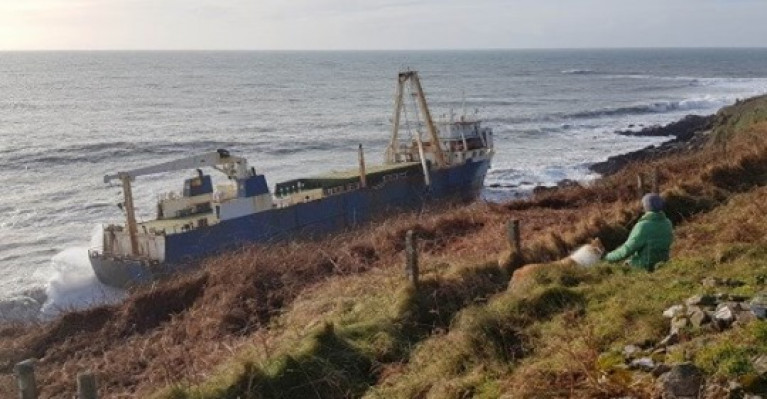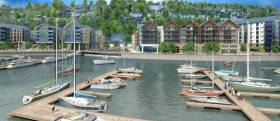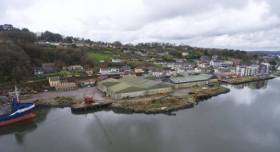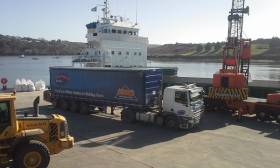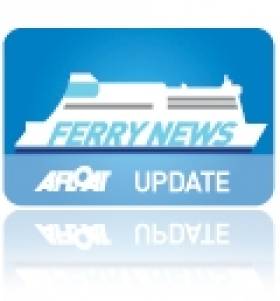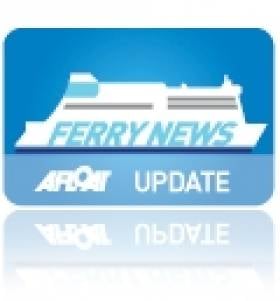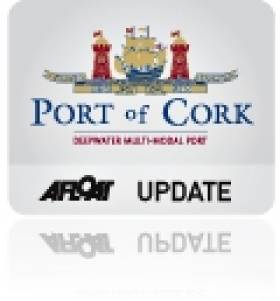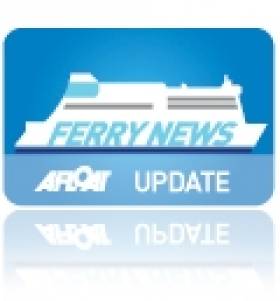Displaying items by tag: Cork County Council
There is a notable increase in leisure craft on the water all around the coast.
Several incidents have been reported of users not adhering to harbour safety regulations, and Cork County Council's Senior Harbour Master has issued a warning that there can be fines of up to €5,000 for breaking the rules.
"The Cork coast is a great resource, however sharing it safely requires strict adherence to rules by all involved," says Julian Renault, "for the sake of all onboard craft and for all water users."
He has called on all boat users to observe speed restrictions and safety and cites a series of incidents in Kinsale Harbour.
"14 vessels were found in excess of the 5 knots speed limit in the inner harbour. Three were asked to reduce speed in order to minimise their wash, and one 16-footer speedboat was found with the crew not wearing lifejackets. The consequences of incidents like this can range from inconvenience and annoyance to other harbour users to tragedy. The Irish coast can be a dangerous place, especially when people decide to take unnecessary risks."
My Podcast guest this week is Quentin Ryder, Kinsale Harbour Master, who has been leading the Council's campaign for more awareness of safety issues and has carried out safety patrols in the harbour. We discussed the issues in Kinsale, as well as the national context, reflected in the Department of Transport's issuing of Marine Notice No.14 'Code of Practice for the Safe Operation of Recreational Craft.' He told me that the main concern is the safety of port users, but this is wider than just a local situation:
Listen to the interview with Kinsale Harbour Master here.
Cork County Council has published information on speed limits in Council-controlled harbours and safety regulations on its website: www.corkcoco.ie
Cargoship Has Environmental Assessment While Washed Up on Cork Coast
Underway is an environmental assessment on the cargoship that washed up on the Cork coast over the weekend.
Cork County Council is investigating if oil or other hazards could leak into the coastal waters around Ballycotton Bay.
The ship had been adrift in the Atlantic for almost a year and a half, after its engine failed and its crew were rescued.
The Irish Examiner has more on the story here.
Cork Harbour: Upset As Passage West Docks Won’t Be Sold
#waterfrontproperty - People in Passage West, reports EchoLive.ie, have reacted with bitter disappointment to the announcement that the local dockyards are no longer to be sold to Cork County Council.
The Evening Echo revealed yesterday that the docks - the location for a major town centre regeneration proposal - has been taken off the market because of uncertainties surrounding Brexit.
The council had been granted €1.9m from the Government last November to buy the docks from the Doyle Shipping Group for a regeneration scheme that would see the docks become a modern waterfront settlement overlooking the harbour.
However, Brexit has led to the decision to take the site off the market, because it does not know what Ireland's future shipping needs will be.
Local Councillor Michael Frick Murphy said there is a lot of disappointment in the area and people feel the potential of Passage West is being thrown to the wayside.
For comments made by the councillor and more, click here.
#WaterfrontProperty - Victoria Dockyard an eight-acre site in Passage West which is up for sale needs to be purchased by the State or Cork County Council in order for a development that benefits the town centre to be built there, TDs have warned.
As the Evening Echo reports, the site was once home to the Royal Victoria Dockyard where ships were built for over 100 years and where over 1,000 people were employed during WW1. It contains several hundred metres of road frontage, three access points and six terraced houses encompassed in a stone wall boundary.
Previous owners Howard Holdings had planned to build a hotel on the site after a €25m purchase in the early 2000s but then sold it to the Doyle Shipping Group (DSG) for €2.75m. It has recently been utilised as a steel scrapyard and is being offered on the open market for around €3.5m.
The current occupier would have to move out once the sale is completed and the buyer would be free to use it as they see fit within planning regulations. The site has been on the open market since September of last year.
It is unlikely its current use will continue once it is sold. To read more on the story click here.
The private quay at Passage West is where last month Afloat.ie featured an Irish owned cargoship involved (not in scrap-trading) but the loading of wood-chip bound for Scotland.
#ScenicPort - Scenic Kinsale with its marina and fishing fleet based in the west Cork harbour is widely renowned for its culinary status, however what is probably less known is its commercial shipping activity, writes Jehan Ashmore.
Around 100 cargoships annually call to Port of Kinsale along with occasional transatlantic superyachts and the odd small cruiseship. Commercial ships take the relative anchorage of the outer harbour downriver from the port on the Bandon estuary that is almost landlocked. Chief imports are bulk animal-foods and exports are timber.
In recent days Afloat monitored one of the larger ships to call that been newbuild Arklow Cape launched in October. The 5,085dwt cargoship having been introduced in November was not on a maiden voyage though it was the newbuild's first port of call to the harbour. Since last night the new ship had departed bound for Foynes.
Initially on arrival to Kinsale the 87m Arklow Cape, the second of 10 'C' class sisters on order from ASL had anchored in the outer harbour. This is located closer to the famous Old Head of Kinsale. On board was a cargo of malted barley that had been loaded in Poole, Dorset. The seven crew of the Irish flagged Dutch built ship had sailed from the UK port to Kinsale’s single commercial pier.
Three years ago the pier named Custom Quay was given a €1.1m upgrade by the port’s authority, Cork County Council. The investment in port infrastructure saw an improvement to the 60m pier which was extended by 25m.
On completion of the works, the first ship to use the upgraded 85m pier took place in March 2015 with the berthing of Swami, incidentally a former ASL fleetmate named Arklow Swan. The ship’s agent Bandon Co-op who are the licensed stevedores for the Port of Kinsale, were instrumental in facilitating this inaugural call using the newly extended quay. Swami had discharged 3,800 tonnes of fertiliser.
Other cargoes traded through the south Munster port where handling facilities cater for coal, cement, fertiliser and grain.
The lengthened Custom Quay is a considerable improvement compared to the original pier in which a visit was made to during the last decade.
On that occasion when covering the Port of Kinsale for Inshore-Ireland (August 2005) and Ships Monthly (November 2005) another cargoship, Conformity by coincidence had too made a maiden port of call to the harbour. She arrived from Boston, Lincolnshire with a cargo of wheat feed.
Pushing the Boat Out to Relaunch New Cork Ferry Service
#CORK FERRY RELAUNCH - According to today's Cork Independent, the Cork-Swansea ferry route which closed last Autumn has been followed-up by a new group to assess the feasibility of reopening the Celtic Sea service.
Those involved in the new group are from Cork County Council, the Port of Cork, Fáilte Ireland and representatives from the Irish Exporters Association which was announced by Mayor Tim Lombard, who believes that the wind up of Fastnet Line earlier this year and departure of ferry, has really hurt businesses in West Cork.
"There is a lack of tourism and a lack of business in West Cork this summer. There has been a major effect seen in the businesses in West Cork following the closure of the Fastnet Line," Cllr Lombard said. "It's why we are trying to push the boat out, if you pardon the pun," He added that the loss is also felt by the manufacturing sector which has lost a vital alternative freight link to the UK.
€500k Sought to Restart Cork-Swansea Ferry Link
#FERRY NEWS - Approximately €500,000 is to be sought from three local authorities in the south-west region so to help restart the Cork-Swansea route which was served by the M.V. Julia (1982/22,161grt) until sailings ceased in November last year.
Representatives from Fastnet Line Ship Holdings Ltd are expected to attend a special meeting of Cork County Council next Monday at which they will outline a business plan for the company, which is in examinership.
They will also address a scheduled meeting of Cork City Council later the same day and are expected to communicate their request to Kerry County Council shortly.
For more about this story in today's Examiner click HERE
Port of Cork to Submit New Container Terminal Plans
#PORT & SHIPPING NEWS - The Port of Cork is scaling down its plans for a new container terminal in Ringaskiddy, according to the Irish Examiner.
The new plan is "significantly scaled back" from the €220 million containter terminal proposal for Oysterbank, which was rejected at appeals stage two years ago.
Port officials hope to submit the new application under the Strategic Infrastructure Act, which means the decision will be made by An Bord Pleanála and not Cork County Council.
Officials are already in consultation with the planning board and interest groups around Cork Harbour to eliminate any issues before proceeding with the new scheme, which will be half the size of the previous plan and will involve less land reclamation.
Expected upgrades to the roads infrastructure in the area will also have an impact on the new proposals.
The €100 million plan would be constructed over four phases, to be fully operational by 2020.
The Irish Examiner has much more on the story HERE.
Photo Exhibition: People of the Sea / Gens de la Mer
Gilles Perrin selected his subjects by visiting harbours and piers in locations such as Cobh, Baltimore, Castletownbere and Schull. The work was conducted through the Artist in residency programme at Sirius Arts Centre, Cobh and later by a similar residency position at the West Cork Arts Centre which took place over a few months in 2007 & 2008.
People of the Sea is organised in partnership with Veolia Environnement, also the name given for a new MOD70 class (Multi One Design). Veolia Environnement is one of only 12 such high-spec performance yachts which visited Dublin Bay in the summer calling to Dun Laoghaire and a transit of Dalkey Sound (PHOTO's). She was in Irish waters under the skipper Roland Jourdain and crew ahead of her first test, the Fastnet Race held in mid-August. To read more about Veolia Environnement click HERE and also www.canyousea.com/en/
The other participants of the exhibition which have lent their support are the Sirius Arts Centre, The Arts Council, Cork County Council and The West Cork Arts Centre, and iophotoworks. For more information about Perrin who has a master's Degree in photography visit www.art-contemporain.eu.org/perrin/
- Schull
- Baltimore
- Cobh
- castletownbere
- Dublin Bay News
- Dun Laoghaire Harbour
- Fishing News
- Cork County Council
- Sailing news
- Dalkey Sound
- Veolia Environnement
- French Photographer Gilles Perrin
- Gilles Perrin
- People of the Sea/Gens de la Mer
- Alliance Francaise Dublin
- French Cultural Centre Dublin
- Irish Fishing Harbours
- Sirius Arts Centre
- The Arts Council
- West Cork Arts Centre
- The Fastnet Race
- MOD70 class
- Multi One Design
- Irish Fishing Industry
- Roland Jourdain
Restructured Fastnet Line Reduce Year Round Service to Seasonal Schedule
The discontinued winter sailing schedule for this year is also expected not to be repeated during October 2012-March 2013. Fastnet Line's decision to make the Celtic Sea route into a shoulder season and summer only service follows a similar path taken by Stena Line which withdrew Dun Laoghaire-Holyhead (HSS) sailings in mid-September, for report click here. The central corridor route is due to reopen sometime in April or May 2012.
Cork City and County council and Kerry County council have provided €700,000 to support Fastnet Line and yesterday they announced an additional €150,000 in co-funding for the period of the examinership. In order to stabilise finances the ferry company are to radically reduce passenger capacity of the Julia (see photo) from 1,500 down to 950. This is in line with the capacities of the Julia serving 'night' sailings.
She has a crew predominately from Eastern Europe and Irish and UK deck officers. The Bermuda flagged, Hamilton registered vessel is currently berthed at Ringaskiddy Ferry Terminal, Cork Harbour. At 154m she is the largest ferry to date capable of berthing in the limited confines of the swing basin in Swansea and with a draft of 5.8m in a port which is subject to a large tidal range on the Bristol Channel.
Operating costs on the 10 hour service has been severely hampered by continuing increases to world oil prices. From the year 2010 to this year, fuel costs rose by 27% and almost 50% from the original budget of 2009. The company claims that each crossing amounts to €18,560 alone in fuel costs.
Fastnet Line to date has carried 150,000 customers, of which 75% have originated from the UK market, generating on average €350 per person (€40m approx) exclusive of fare and on-board spend. This crucial market is core to the success of the company's direct 'gateway' route to scenic south-west Ireland, with Swansea connected to the M4 motorway linking midland population centres and London. The operator claims a saving of 600km driving based on a round trip compared to using rival ferries running on routes to Rosslare from Pembroke Dock and Fishguard.
Since the reinstatement of the service in March 2010, after Swansea Cork Ferries pulled the Superferry (photo) off-service in 2006, the loss to tourism generated revenue on both sides of the Celtic Sea was estimated to be £25m per annum according to the Welsh Assembly and a similar figure recorded in the Cork and Kerry region.
The company also outlines the reduction in carbon emissions saved from operating the only direct service specifically connecting the regions of Glamorgan and Munster. Some 500,000 freight miles alone were saved in the Welsh region since the service started instead of using alternative route running from Pembrokeshire ports.
- Cork Harbour
- west cork
- port of Cork
- Celtic sea
- Cork City council
- Fastnet Line
- M.V. Julia
- M4 motorway
- Kerry
- Irish High Court
- Stena Line
- Ports and Shipping News
- cork harbour news
- Ferry news
- HSS
- Welsh Assembly
- Cork County Council
- Associated British Ports
- ABP
- Ringaskiddy Ferry Terminal
- M.V. Superferry
- SwanseaCork Ferries
- SCF
- Fastnet Line Group
- Kerry County Council
- HSS Dun LaoghaireHolyhead sailings
- Glamorgan
- Munster regions
- Bristol Channel
- Bristol Channel tidal range
- Swansea Port
- Irish tourism sector
- Pembroke DockRosslare
- FishguardRosslare



























